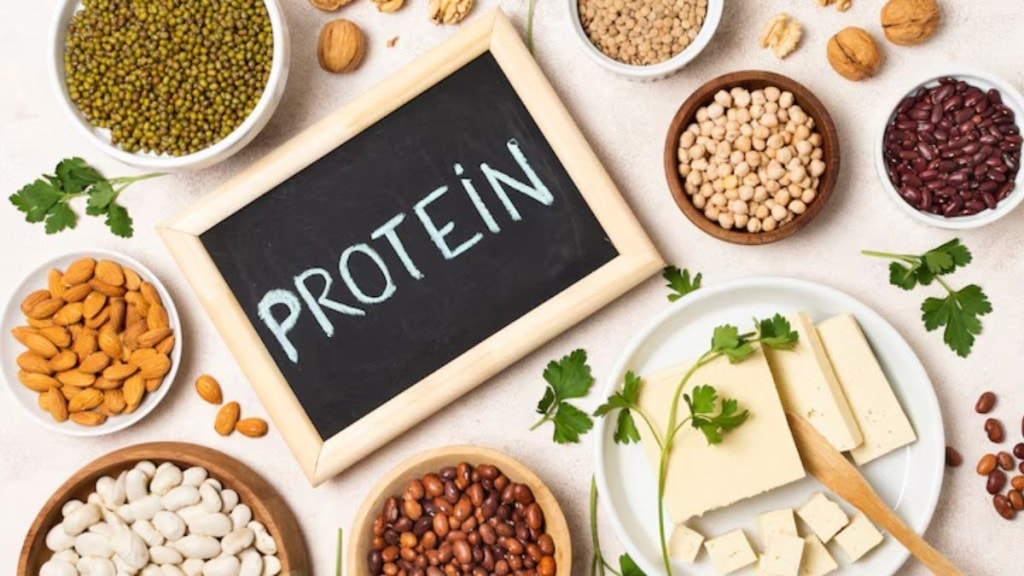Protein has become one of the most talked-about words in the world of health and nutrition. Walk into any supermarket, and you’ll find protein-packed granola bars, pancakes, milkshakes, popcorn, and even cookies. With so many products claiming to be “high-protein,” it’s easy to think you might not be eating enough.
But according to top nutrition experts, if you eat enough food daily, especially from a variety of sources, you’re likely already getting more than enough protein.
Why protein is important?
Protein is a macronutrient, which means it’s one of the three main nutrients your body needs to stay healthy, along with carbohydrates and fats. It plays a vital role in building and repairing muscles, maintaining strong bones, healing wounds, and keeping skin, hair, and nails healthy.
Dr. Federica Amati, a nutrition expert at Imperial College London and head nutritionist at the health science company ZOE told the US News, “Protein is so important that our bodies have adapted to make sure we get enough of it—if we’re eating enough overall.”
Proteins are made of smaller parts called amino acids. Although your body can create most amino acids, essential amino acids have to come from food.
How much protein do you actually need?
The World Health Organization (WHO) recommends that healthy adults get around 0.8 grams of protein per kilogram of body weight per day. That’s about 50 grams of protein for an average woman (weighing around 65 kilograms or 143 pounds), and 60 grams for an average man (around 75 kilograms or 165 pounds).
Most people in high-income countries already eat more than this amount every day. “If you’re not starving or underweight, chances are you’re getting enough protein,” said Dr. Amati.
Protein deficiency is rare and usually seen in people suffering from malnutrition or those living in low-income areas with limited food availability.
What if you’re vegetarian or vegan?
People who don’t eat meat may have slightly lower protein intake compared to those who eat meat or fish, but they can still meet their needs with the right food choices.
Bridget Benelam, a nutritionist at the British Nutrition Foundation, said it’s important to include a mix of protein-rich plant foods such as beans, lentils, tofu, chickpeas, peas, nuts, seeds, and whole grains. Dairy products and eggs are also good options for vegetarians.
She also suggested spreading protein intake throughout the day. “It seems to help muscle health if you eat some protein at every meal, rather than just loading it all into dinner,” Benelam said.
Where to get protein from
There are many good sources of protein, both from animal and plant-based foods.
- Animal-based sources: These include meat, fish, chicken, eggs, and dairy products like milk, yoghurt, and cheese. They are considered complete proteins, meaning they provide all the essential amino acids your body needs. They also often come with other nutrients like iron and zinc but can be high in saturated fat.
- Plant-based sources: These include beans, lentils, tofu, tempeh, chickpeas, peas, soy products, quinoa, nuts, and seeds. While they may not always contain all essential amino acids in one food, eating a variety of plant proteins over the day can still meet your body’s needs.
“Plant proteins are great because they also provide fibre, which most of us aren’t getting enough of,” Dr. Amati said.
Do you need protein-rich foods?
With so many protein-added products on the market, many people think they need to buy them to stay healthy. But experts say this is mostly clever marketing.
“Adding protein to food is very beneficial for the profits of that food,” Dr. Amati said. “It’s not usually based on what people actually need.”
Unless you have a specific health condition or are recovering from surgery, you likely don’t need extra protein. Many of these high-protein products are also packed with added sugar and unhealthy fats.
Benelam agreed, saying that most healthy adults in developed countries already get enough protein without needing special shakes or snacks.
Want stronger muscles? Focus on exercise, not just protein
If you’re trying to build muscle or improve your body composition, protein helps, but only if you’re also exercising.
“If you’re worried about your strength or muscle tone, what really works is lifting heavier weights and challenging your body,” said Dr. Amati. “Just eating a protein bar won’t make a difference without the right kind of movement.”
Protein is essential for your health, but that doesn’t mean more is always better. Most people get plenty of protein from their regular diet. Instead of spending money on protein-rich products, focus on eating balanced meals with a mix of protein-rich foods and stay active.
Eating a variety of whole foods and adding some movement to your day is the best and most natural way to support your muscles, bones, and overall health.








